Germany marks fall of Berlin Wall but forgets DDR lessons – US ‘socialist defector’ Victor Grossman
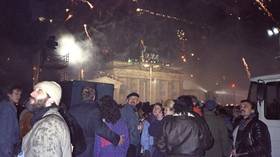
Germany celebrating 30 years since the fall of the Berlin Wall is seen as a moment of unity. Yet, lessons East Germany once had to offer were cast aside, a US-born publicist and author, who defected to East Germany in 1952, said.
Following the fall of the wall, which was seen as the most vivid manifestation of Europe's division during the Cold War era, the Germans – and arguably the rest of the world with them – happily and unquestionably embraced the ideas of western capitalism in hopes it would offer a bright future for them.
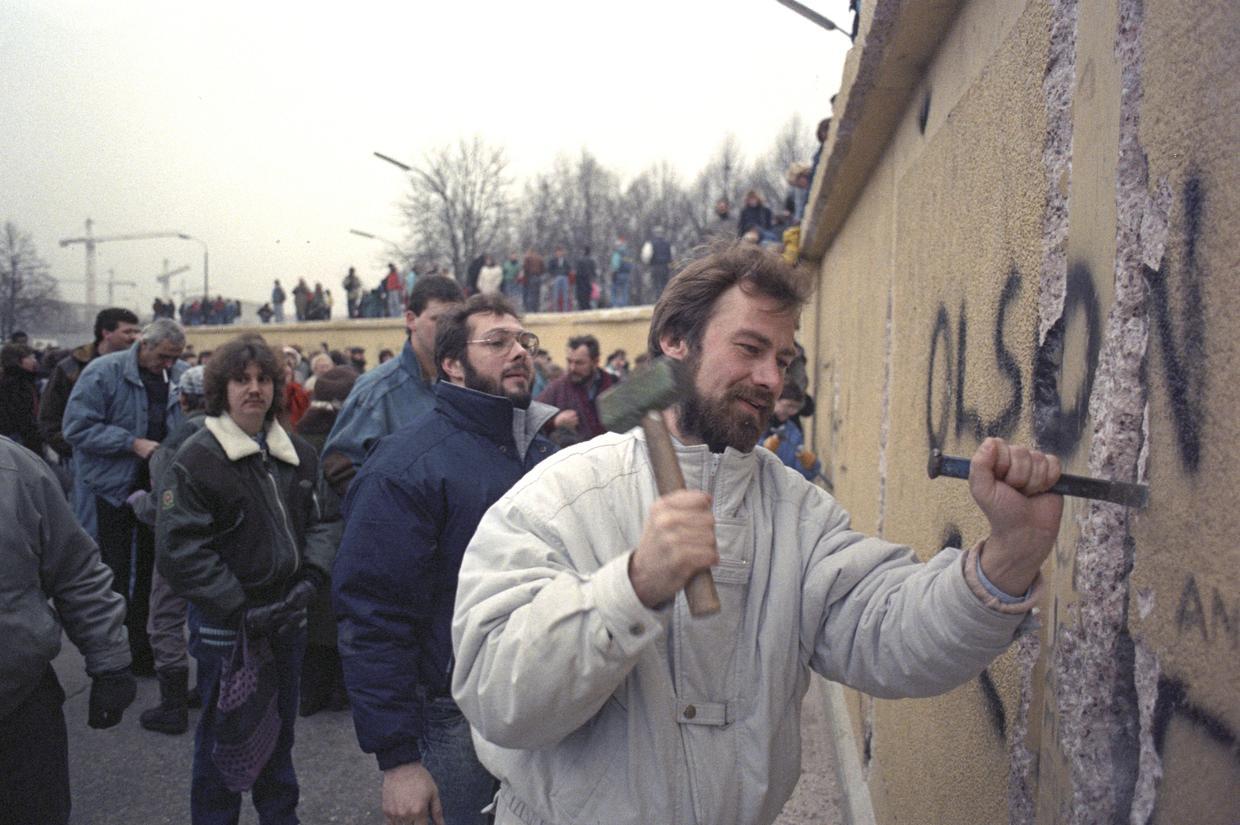
Yet, the reality they found themselves in turned out to be much less secure, even if it made them a little bit wealthier, Victor Grossman, a US-born veteran journalist, who fled from McCarthyist persecution to East Germany in 1952, believes.
In an interview with RT, Grossman shares his story and provides a unique perspective on what East Germany, once considered obsolete, ineffective and undemocratic, can still offer this world.
Being leftist was a crime in 1950s US
I decided to flee a few years after I left college, after I left Harvard, because I was a leftist and was very involved politically on the left. I saw many people, who grew up in 1930s and 1940s in New York and in the US but by 1951, when I got drafted into the army, the scene had changed completely; the Cold War had begun.
The so-called McCarthy Era meant that people with left-wing views were actually pariahs.
Then I got drafted when the Korean War began. When you were drafted you had to say whether you had ever been in a leftist organization. I panicked because that already made me a criminal. So, even though I had been, I signed that I had never been.
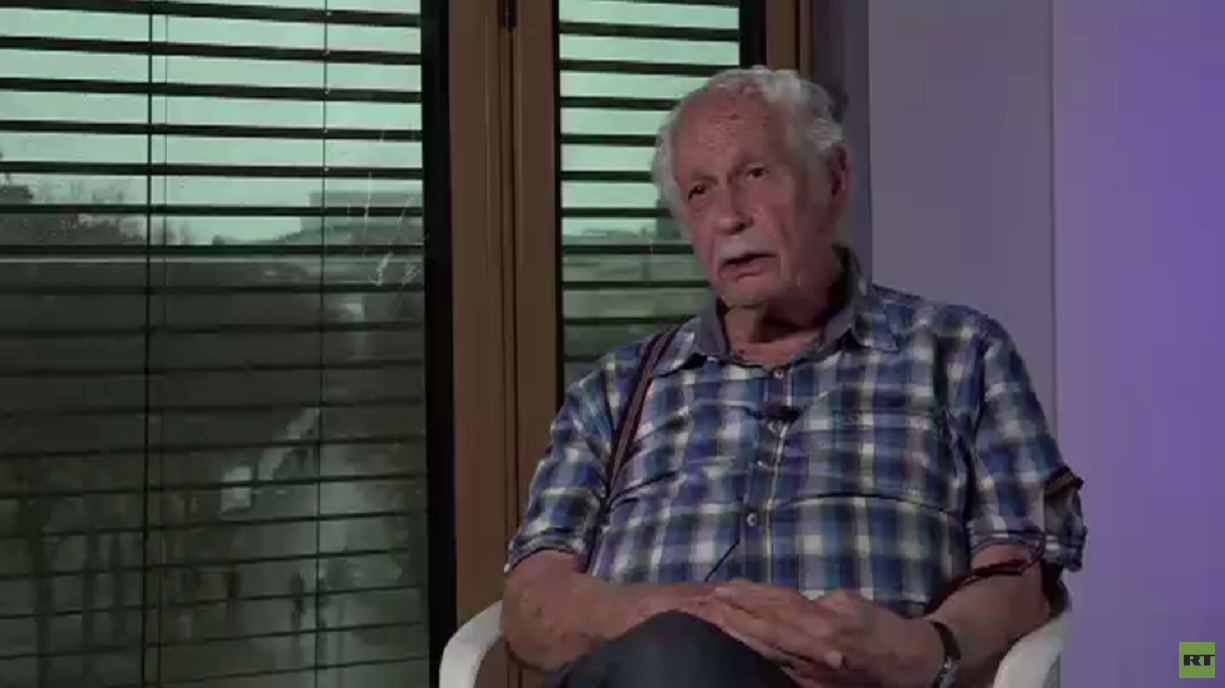
I was lucky to be sent not to Korea but to West Germany but they did check up on me. A penalty for having lied, which I did, was up to five years in prison. I did not want to spend a year and six months in a military prison, so I decided to desert and I did desert dramatically, swimming across the Danube River from the American to the Soviet zone, and the Soviet Army sent me to East Germany, the DDR. That is how I landed here many years ago.
Fall of Berlin Wall had good & bad sides
The fall of the Berlin Wall meant a great deal. I was living in East Berlin. On the one hand I could see how happy people were to be able to meet very easily with friends and relatives in West Berlin and West Germany, to travel to all parts of the world. It meant that they could get lots of commodities that were not available in East Germany. People had plenty to eat and wore the most modern things and used the better goods that they saw advertised every evening on western TV. They could not get them easily and now, with the wall down, they could.
It meant less really stupidly boring propaganda in the media, the idea that there is really only one correct idea and everything else is wrong – and the pressure involved. For these reasons, I could understand that the people were very happy. It did not affect me so much because I could not go anywhere in the West, as a deserter.
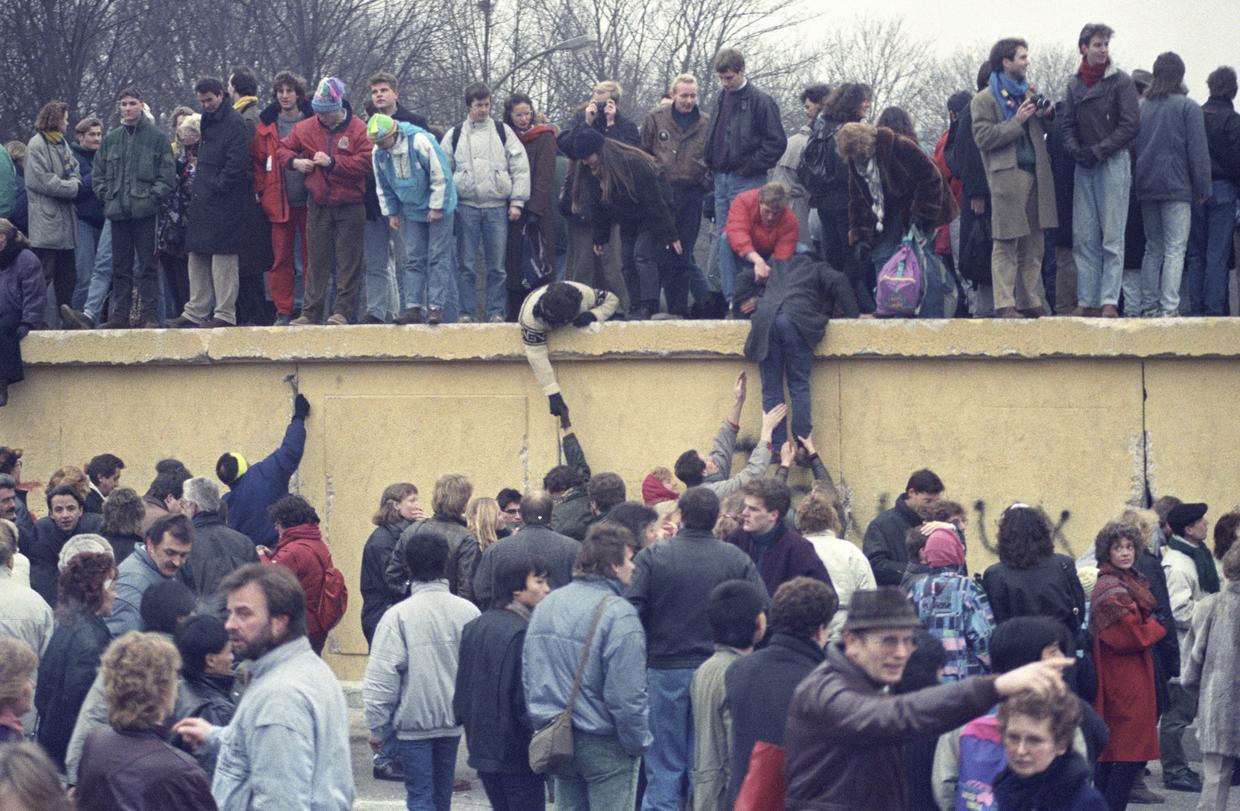
I had bitter regrets about this at the same time. Because for me the DDR, East Germany, was an experiment, which in the end did not succeed but which was a very valuable and important experiment. Just a few points: we had no drug problem in East Germany and therefore also no AIDS. These were the two things, which the wall kept out.
More importantly, for two generations, Germans could not get rid of Nazi and racist ideas in people's heads. In East Germany, if they had them, they kept them to themselves. They did not voice them publicly. They could have voiced them among their family or to close friends, but not publicly. Now, after the wall went down, I see whole columns of fascist thugs right near my home, with swastikas, fascist slogans and looking just like the SS men eighty years ago. This is one of the most frightening things about the fall of the wall.
Millions lost their jobs
One of the good things about the DDR I felt was that the big huge companies and concerns and corporations that supported Hitler and caused the war have been thrown out completely after 1945 from East Germany but had remained strong in West Germany. The US Senator Kilgore (Harley M. Kilgore) told the US senate very officially and described how they’d supported Hitler. It was not just one man, it was these big corporations. After the wall came down, they came back.
Not only did they come back but they came back by closing down entire industry in East Germany, throwing millions of people out of work, throwing almost all the professors out of jobs, throwing all my journalist friends – because I studied journalism in Leipzig in East Germany – out of their jobs and really cutting into the whole society in every way possible.
Every event has its good and bad sides. I could be happy with the people that rejoiced but I was worried about what was to come. And I was not completely mistaken. I am afraid my fears were justified.
Unemployment got less severe than in the first terrible and disastrous years. People more or less found jobs. Conditions were not as good, especially because they are very insecure. In the DDR you were never afraid of losing a job unless you beat your foreman with a crowbar or come three weeks in a row dead-drugged to be thrown out – and, even then, the trade union had to approve it.
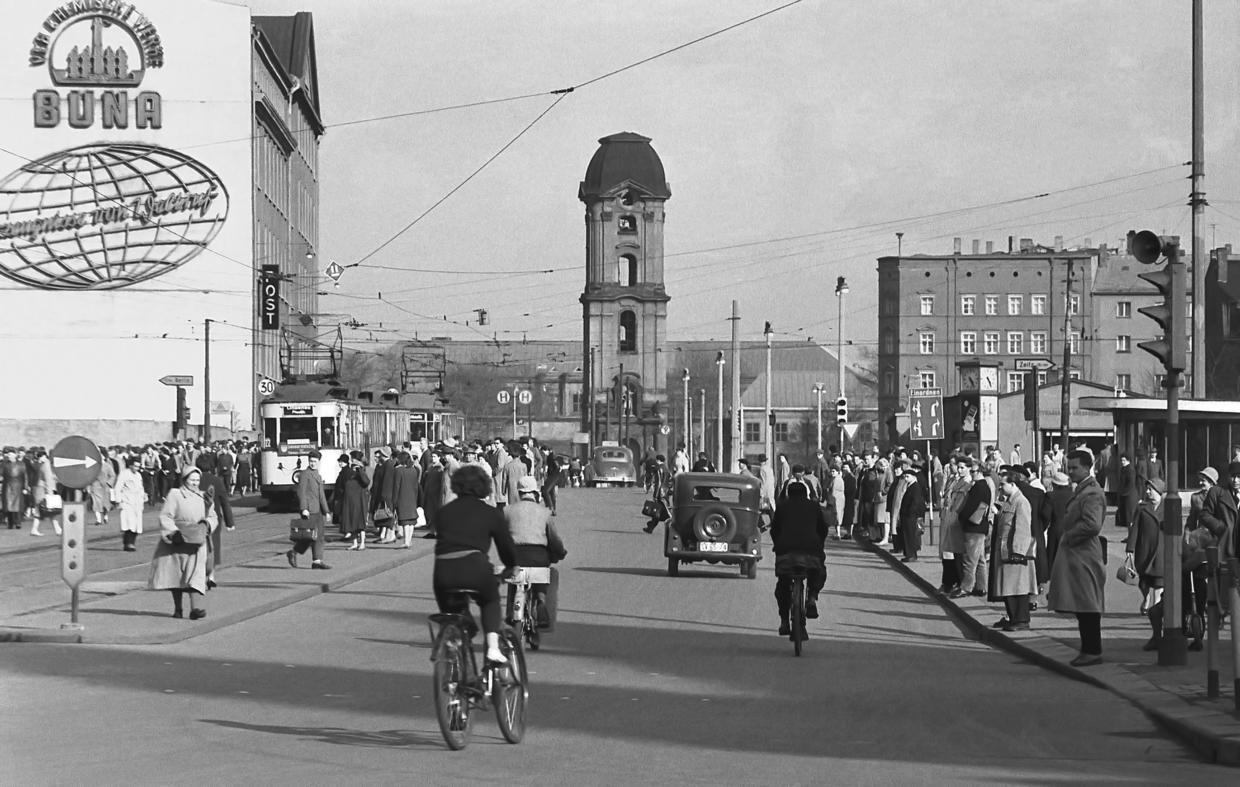
There was a saying among working people that did the rounds three years after the wall went down. It went: in the DDR days if you were smart, you would not say anything against the party leadership but you could say everything you wanted about your foreman or management. Now, it is the other way ‘round: you can say anything against a president or a chancellor but you'd better not to say anything about your foreman. This shows this different way of living between two societies.
No more confidence in future
Now, we have an industry and a society where millions are uncertain of what tomorrow is going to bring. They do not know whether they will have a job tomorrow, they do not know whether they could afford the homes they rent tomorrow. People are thrown out of their homes if they cannot afford to pay or cannot keep up with mortgage payments. That was illegal in the DDR days. It was illegal to throw people out of their apartment. At worst, you could get them out but you had to give them another apartment, albeit a cheaper one.
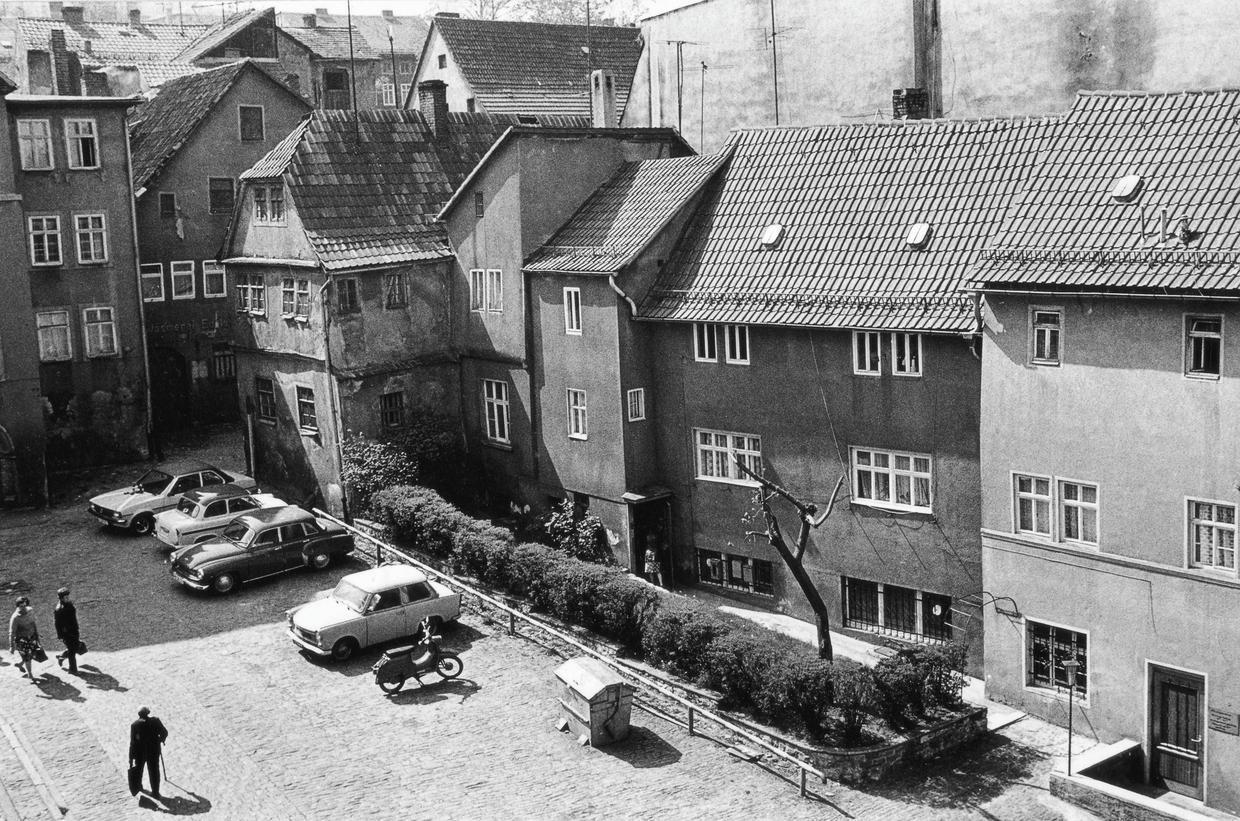
In DDR days, I told people who dreamed of the golden western future where they would have everything and live like kings, I told them that you will be able to buy as many soft drinks as you want and travel to see the leaning tower of Pisa or the Golden Gate bridge but you may not have a job and you may not be able to pay for your home. Unfortunately, my fears have justified themselves.
It means that, today, although the unemployment is not as terrible as it was in the first four or five years, it is still not good and many jobs that people have are insecure jobs. They do not know for how long it will last and they are afraid of not coming in at weekends out of fear of losing their jobs.
There was a sense of security in the old days which is completely lacking today.
Many products were missing, which you’d like to have had in those days. You can have more today if you can afford them. This is also a different issue. In the old days, most people seemed to have more money than they could spend because there were not enough luxury goods in our shops. They had money to go on vacation. Not everybody, but a large number.
Today, many people –and especially children– are suffering from a severe lack of money. This is another problem which has arisen. That makes me think, after 30 years, that, as it is with many events in world history, there is a good side and a bad side to any event. And there were bad sides, too.
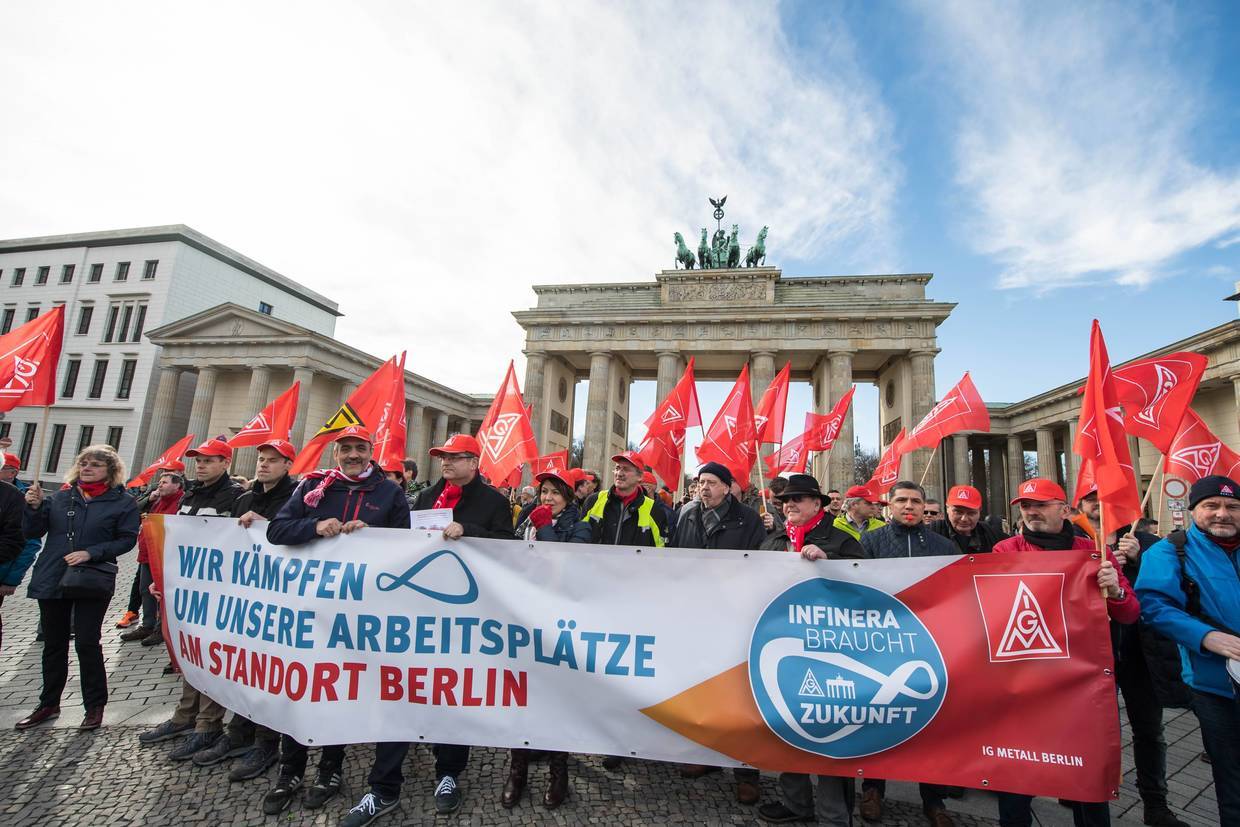
That makes me still sad that that experiment, the DDR, a small and a poor part of Germany – yet they managed to almost completely get rid of poverty there. This is an achievement that has rarely been reached in any place in the world. To a great extent, the DDR reached a state in which no one really feared poverty.
These days, we’ve had a terrible depression in 2006, 2007 or 2008. Who knows when another one will come? And maybe it will be a worse one. We do not know.
Establishment parties fail to address people's concerns, fueling a new Nazi rise
There is another aspect, too. That question of the Nazis I mentioned earlier. In the old days, as I said, some people had those kinds of thoughts but kept them to themselves. Today, they not only march in the streets – they have political parties in the Bundestag. It is a big party, it has over 90 MPs. Not only that but in recent elections in East Germany, in three of the five states it won a very good second place.
That means for many old-timers… and I am old enough to remember the years even before the WWII, I was a child but in New York we were very politically involved – I still remember fighting to save Spain and fighting to prevent a war, and, when the war came my brother went off to fight, my father got a job helping the US. Watching on the map how Nazis moved closer to Moscow and later in the south down to the Caucasus and in North Africa moving closer to the Suez Canal, and then, of course, in the Pacific – that was frightening.
Also on rt.com Another regional election defeat for Merkel, as German leader’s party beaten by right-wing AfDIt started in the early 1930s in Germany and today we see the signs that are really similar to those years. People are falling for the propaganda that their problems and insecurity they face, the lack of jobs and chances – they are told – also by many in the media – to blame it all on the foreigners coming in – the migrants or refugees or Muslims as they are sometimes called. They are told that they are getting all the privileges and the perks you should be getting. This phony aspect has led many people to vote for these right-wing parties, who are not really interested in their well-being at all and who are very dangerous.
They sometimes sound almost the same as Goebbels and Hitler and the bunch of them. And that means it is a rather frightening situation today.
Unfortunately, the establishment parties have not offered proper answers to the questions people do have, not only about immigration but about the whole [social] support system. They have not answered these.
I had hopes and I still have hopes that one party – the Left Party, to which I belong, fills that gap and not only offers solutions but also fights for them. To help people get together to fight for their rights so that rents do not go soaring up in the skies, as they are, and so that they have solid jobs and their children get enough, etc.
This party favors these things but it was not enough to capture people's imagination and to organize them into doing something. It is also important for the world because Germany is such an important country, it is the most important in Europe, one of the most important in the world because it is so powerful economically – now, especially with the UK breaking out of the EU and all kinds of difficulties accompanying it – in almost all countries there are political upsets.
The question is which way Europe will turn and which way Germany will help it to turn.
If you like this story, share it with a friend!














